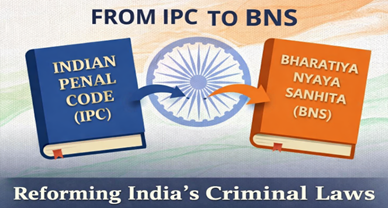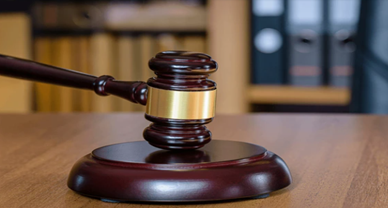Domain Name Disputes and Cybersquatting in India – Part II
METHODS OF RESOLVING CYBERSQUATTING DISPUTE IN INDIA
INTERNATIONAL BODIES

The foundation of the ICANN (Internet Corporation for Assigned Names and Numbers) in 1998 as a worldwide internet administration and the introduction of UDRP (Uniform Domain Name Dispute Resolution Policy) in 1999 for effective and cost-saving international domain name disputes. This has been one of the most remarkable events in the past, particularly for solving international legal problems originating through the nature of the borderless internet on the one hand and intellectual property rights of some users on the other.
2. Uniform Domain Name Dispute Resolution Policy – ICANN has adopted the Uniform Domain Name Dispute Resolution Policy (UDNDRP or UDRP), the policy for the resolution of domain name disputes. This policy provides for arbitration of the dispute instead of litigation in respect of domain name disputes. As per this policy, any person (complainant) can bring an action on the grounds that:
- A domain name is identical or confusingly similar to a trademark or service mark in respect of which the complainant has rights.
- The domain name owner has no rights or legitimate interests in the domain name.
- The domain name has been registered and is used in bad faith.
But the complaint is required to prove all these elements if he wants his actors to succeed. If the abusive registration is proved, the domain name registration is canceled or transferred to the complainant but there are no financial remedies provided to him.
3. WIPO Arbitration and Mediation Center Decisions on Domain Names – World Intellectual Property Organization is the principal domain name dispute resolution service provider under the UDRP and is accredited by ICANN. WIPO provided qualified panelists, thorough and expeditious administrative procedures, and overall impartiality and credibility. A domain name case filed with WIPO is normally concluded within two months, using on-line procedures, and a minimal fee is charged. Only extra-ordinary cases are heard in person.
NATIONAL BODIES
In India, no legislation explicitly describes cybersquatting or other domain name disputes. The Information Technology Act, 2000 (IT Act), which addresses many cybercrimes, oddly ignores the problem of domain name disputes and cybersquatting. However, domain names may be considered trademarks based on use and brand reputation. In the absence of appropriate law that deals with cybersquatting, victims can initiate an action for passing off and infringement of trademarks under the Trade Marks Act, 1999.
1. “.IN” Dispute Resolution Policy – In response to these issues the “.IN” Dispute Resolution Policy (.INDRP) was formulated by the “.IN” Registry for the domain name dispute resolution in India. The .INDRP claims to be in line with internationally accepted guidelines and relevant provisions of the Indian Information Technology Act 2000. Under the National Internet Exchange of India (NIXI), the “.IN” Registry functions as an autonomous body with primary responsibility for maintaining the “.IN” ccTLD and ensuring its operational stability, reliability, and security.
Proceedings at the INDRP can be initiated by any person who considers that the registered domain name conflicts with his legitimate rights or interests on the premise that:
- The registrant’s domain name is identical or confusingly similar to a name, trademark, or service mark in which he has rights; or
- the registrant has no rights or legitimate interests in respect of the domain name, and
- the registrant’s domain name has been registered or is being used in bad faith. The registrant is required to submit to a mandatory arbitration proceeding if a complaint is filed. The .IN Registry appoints an arbitrator to proceedings in accordance with the Arbitration & Conciliation Act 1996. The arbitrator usually considers the domain name registered and used in bad faith in circumstances when:
- the registrant has acquired the domain name primarily for the purpose of selling, renting, or otherwise transferring the registration to the owner of the trademark or service mark, or to a competitor of the complainant, for valuable consideration in excess of the registrant’s documented out-of-pocket costs directly related to the domain name; or
- the registrant has registered the domain name in order to prevent the owner of the trademark or service mark from reflecting the mark in a corresponding domain name, provided that the registrant has engaged in a pattern of such conduct; or
- the registrant has intentionally attempted to attract Internet users to his website or other online location, by creating a likelihood of confusion with the complainant’s name or mark as to the source, sponsorship, affiliation, or endorsement of the registrant’s website or of a product or service on the registrant’s website.
In the case of Starbucks corporation v. Mohanraj (Decided on 26th Nov 2009) the respondent’s domain name www.starbucks.co.in was confusingly similar to the complainant’s domain name www.starbuscks.in, it was contended that the domain name of the respondent is identical and confusingly similar to the complainant’s domain name. it was also contended that the respondent has no legitimate interest in the domain name. Further, it was contended that the mark was used by the respondent in bad faith. The learned arbitrator held that the disputed domain name was confusing, similar, and identical to the complainant and that they had right in the trademark. The respondent had registered the domain name in bad faith and so the domain name should be transferred to the complainant
In the case of Morgan Stanley v. Bharat Jain (Decided on 28th October 2010) the disputed domain name www.morganstanleybank.co.in was registered by the respondent on June 20, 2010. The complainant contended that the addition of ccTLD “.co.in.” was insufficient to render the disputed domain name dissimilar to the complainant’s mark MORGAN STANLEY. Hence the disputed domain name was confusingly similar to the above-stated mark.
In the case of GOOGLE Inc. v. Gulshan Khatri (Decided on 6th May 2011). The complainant filed the instant complaint challenging the registration of the domain name in favor of the respondent the grievance of the complainant was regarding the latter’s act of adopting identical and identical domain name and that also in respect of similar services of the respondent.
The learned arbitrator held that the impugned domain name was identical and confusingly to the other prior registered domain name and registered trademark of the complainant and directed the registry to cancel the said domain name forthwith and transfer the said domain name in favor of the complainant.
On 2018, October 10 the INDRP has retrained the respondent from using the domain name and transfer the domain name in favor of the complainant.
2. Judicial Precedence –There has been a lot of instances of cybersquatting in the past few years in India. The courts always deal with matters related to domain name disputes and cybersquatting. In India, one of the earliest judgments on cybersquatting was from the Bombay High Court in the case of Rediff Communication v. Cyberbooth. In this case, the court was of the opinion that the value and importance of a domain name are as a corporate asset of a company. In this case, the defendant had registered the domain name radiff.com which was similar to rediff.com. The Court was of the opinion that internet domain names are of importance and can be a valuable corporate asset and such domain name is more than an Internet address and is entitled to protection equal to a trademark. The court gave the decision in favor of the plaintiff.
The Delhi HC very recently in 2018 the court has restrained a cyber-squatter from using or selling or commercially exploiting the domain name and further said that India Today Group chairman Aroon Purie has prima facie the right over the domain name aroonpurie.com. In an interim order, the court has restrained a cyber-squatter from using or selling or commercially exploiting the domain name.
The domain name aroonpurie.com was registered and appropriated by one Kautilya Krishan Pandey. He had also used a picture of Mr. Aroon Purie on the home page of the said domain name and put it up for sale. Pandey also made an offer to sell the domain aronpurie.com to Aroon Purie at a premium rate, which was contested, after which he assured the India Today Group about transferring the domain back to Mr. Purie, but did not do so. Dr. Puneet Jain, appearing for Mr. Purie, sought a permanent injunction against defendants for cybersquatting and misuse of domain name aroonpurie.com.
CONCLUSION
In India, due to the absence of relevant cyber laws, cases are decided within the ambit of trademark laws by interpreting the principle of Passing off with regard to domain names in the court and by the “.IN” dispute resolution policy in India. On account of the problems Indian jurisdiction faced and the various jurisdictions looked into there is an urgent need to draft new legislation in India that would expressly deal with cybersquatting and domain name disputes.
Author: Pratibha Ahirwar, Intern at IP and Legal Filings, and can be reached at support@ipandlegalfilings.com.


